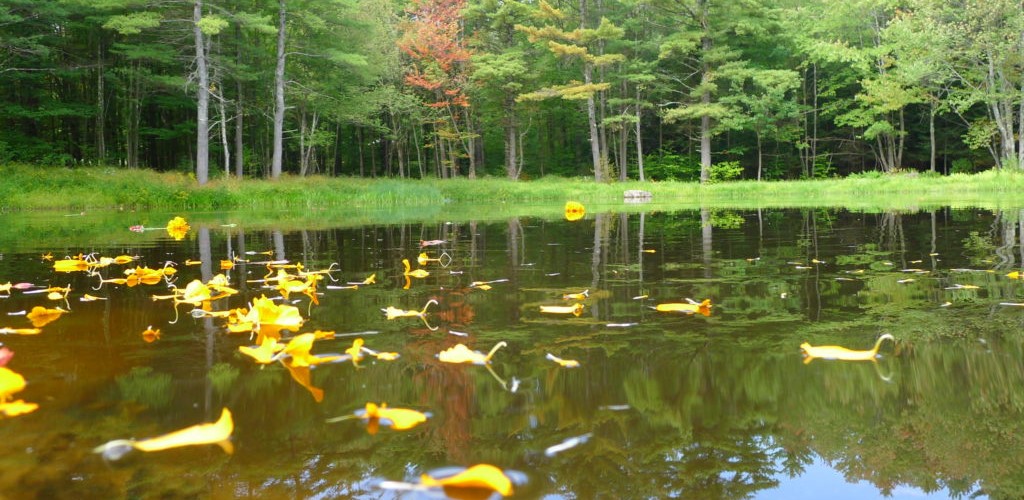Soul Fire Farm is located on 80-acres of land that historically was stewarded by the Stockbridge-Munsee Band of the Mohican Nation. The Mohican people were forcibly removed from their territory in the 1800’s to a reservation in northern Wisconsin. We have been building a relationship with members of the community over the past several years and are currently in the process of establishing a “cultural respect easement” which would allow Mohican citizens to use the Soul Fire Land for ceremonies and wildcrafting in perpetuity. Additionally, we have a native seed exchange with some of the farmers and herbalists in the community and are working with Mohican people locally on the fight to preserve their ancestral burial grounds from development.
The soils on the land are mostly Buckland (BuC “very stony loam”) and the dominant trees species include Norway spruce, white pine, red pine, aspen, white birch, striped maple, red maple, hemlock, sugar maple, yellow birch, black birch, beech, black cherry, American hornbeam, and white ash. We are working to restore the red oak community which was impacted by heavy logging by the previous owner.
We believe that the land is a relative, not a commodity. We use divination tools from West Africa to ask permission of the Land before making any major changes. We also have a ritual gratitude practice to maintain our good relationship with the Ground. Our regenerative, carbon sequestering farming practices, such as no-till, cover crops, mulch, compost, raised beds, agroforestry, silvopasture, and native species restoration – are part of that covenant to care for the Land.
The Soul Fire Farm land is held cooperatively by the “Soul Fire Farm Land Stewardship Collective LLC,” a housing cooperative that includes all residents in decision-making using a one member, one vote structure. The nonprofit organization Soul Fire Farm Institute, Inc. is one of the resident members of this cooperative.
The Land

